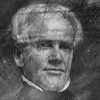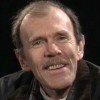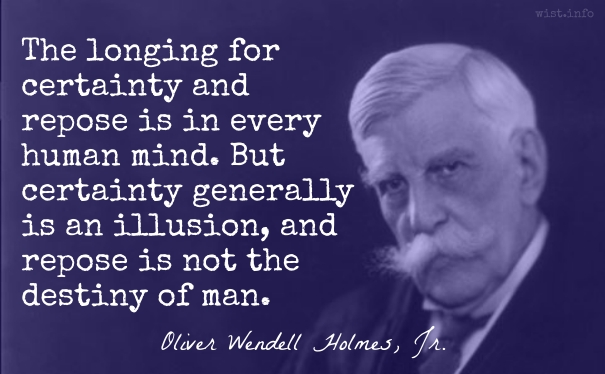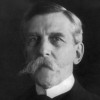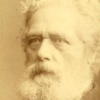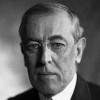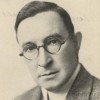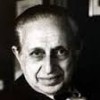Quotations about:
meaning of life
Note not all quotations have been tagged, so Search may find additional quotes on this topic.
A hen is only an egg’s way of making another egg.
Samuel Butler (1835-1902) English novelist, satirist, scholar
Life and Habit, ch. 8 (1877)
Full text.
I am of the opinion that my life belongs to the whole community and as I live it is my privilege to do for it whatsoever I can. I want to be thoroughly used up when I die, for the harder I work the more I live. I rejoice in life for its own sake. Life is no “brief candle” to me; it is a sort of splendid torch which I’ve got a hold of for the moment and I want to make it burn as brightly as possible before handing it on to future generations.
George Bernard Shaw (1856-1950) British playwright and critic
“Art and Public Money,” speech, Municipal Technical College and School of Art, Brighton (1907-03-06)
(Source)
This is the "official" version that shows up in Archibald Henderson, George Bernard Shaw: His Life and Works, ch. 16 (1911), as the final words. A variant version from the reporter's notes was published in the Sussex Daily News (1907-03-07):
I consider my life belongs to the whole community, and while I last it is my privilege to do what I can for it. I want to be worn out, because the harder I am working, the more I live. I enjoy like for its own sake. It is no "brief candle" for me. It is a sort of glorious torch, which I have got the hold of for the moment, and I want to make it blaze brighter before I hand it on to future generations.
For the "brief candle" reference, see Shakespeare.
This passage is sometimes quoted incorrectly preceded by a passage in the "Epistle Dedicatory to Archibald Henderson" to Man and Superman (1903). This error may have come from Stephen Covey, who identified the chimera as one of his favorite quotations.
We know nothing of tomorrow; our business is to be good and happy today.
Sydney Smith (1771-1845) English clergyman, essayist, wit
Memoir of the Reverend Sydney Smith, by His Daughter, Lady Holland, Vol. 1, ch. 12 (1855)
(Source)
Standing in the presence of the Unknown, all have the same right to think, and all are equally interested in the great question of origin and destiny. All I claim, all I plead for, is liberty of thought and expression. That is all.
All animals, except man, know that the principal business of life is to enjoy it.
Samuel Butler (1835-1902) English novelist, satirist, scholar
The Way of All Flesh, ch. 19 (1903)
Full text.
We don’t have to be “successful,” only valuable. We don’t have to make money, only a difference, and particularly in the lives society counts least and puts last.
William Sloane Coffin, Jr. (1924-2006) American minister, social activist
Credo, “Faith, Hope, Love” (2004)
(Source)
The whole of life is just like watching a [film], he thought. Only it’s as though you always get in ten minutes after the big picture has started, and no one will tell you the plot, so you have to work it all out yourself from the clues. And you never, never get a chance to stay in your seat for the second house.
Everyone must leave something behind when he dies, my grandfather said. A child or a book or a painting or a house or a wall built or a pair of shoes made. Or a garden planted. Something your hand touched some way so your soul has somewhere to go when you die, and when people look at that tree or that flower you planted, you’re there. It doesn’t matter what you do, he said, so as long as you change something from the way it was before you touched it into something that’s like you after you take your hands away.
Ray Bradbury (1920-2012) American writer, futurist, fabulist
Fahrenheit 451, ch. 3 [Granger] (1953)
(Source)
It doesn’t seem to me that this fantastically marvelous universe, this tremendous range of time and space and different kinds of animals, and all the different planets, and all these atoms with all their motions, and so on, all this complicated thing can merely be a stage so that God can watch human beings struggle for good and evil — which is the view that religion has. The stage is too big for the drama.
Richard Feynman (1918-1988) American physicist
Viewpoint interview by Bill Stout, KNXT (1 May 1959)
Reprinted in Perfectly Reasonable Deviations from the Beaten Track, ed. by Michelle Feynman, Appendix I (2006).
The purpose of life is not to be happy. It is to be useful, to be honorable, to be compassionate, to have it make some difference that you have lived and lived well.
Ralph Waldo Emerson (1803-1882) American essayist, lecturer, poet
(Misattributed)
Though widely credited to Emerson, this appears to be a misattributed variation of a Leo Rosten quotation. More discussion of the connection here: The Purpose of Life Is Not To Be Happy But To Matter – Quote Investigator.
Here’s a test to find whether your mission on earth is finished: If you’re alive, it isn’t.
Richard Bach (b. 1936) American writer
Illusions: The Adventures of a Reluctant Messiah, ch. 15, epigraph (1977)
(Source)
If you think of this world as a place intended simply for our happiness, you find it quite intolerable: think of it as a place of training and correction and it’s not so bad.
After all, when the day of judgement comes we shall be examined about what we have done, not about what we have read; whether we have lived conscientiously, not whether we have turned fine phrases.
[Certe adveniente die judicii, non quæretur a nobis quid legimus, sed quid fecimus; nec quam bene diximus, sed quam religiose viximus.]
Thomas à Kempis (c. 1380-1471) German-Dutch priest, author
The Imitation of Christ [De Imitatione Christi], Book 1, ch. 3, v. 5 (1.3.5) (c. 1418-27) [tr. Knox-Oakley (1959)]
(Source)
(Source (Latin)). Alternate translations:
At the day of judgment it shall not be asked of us what we have read, but what we have done: nor how well we have said, but how religiously we have lived.
[tr. Whitford/Raynal (1530/1871)]
On the day of judgment we will not be asked what we have read, but what we have done; not how well we have discoursed, but how religiously we have lived.
[tr. Whitford/Gardiner (1530/1955)]
Assuredly at the day of judgment we shall not be examined how many bookes we have read, but how many good workes we have done; not how rhetorically we have spoken, but how religiously we have lived.
[tr. Page (1639), 1.3.22]
A Day of Judgment there will come, where in Measures will be taken very different form ours; when the Enquiry, upon which our Affairs must all turn, will be, not how much we have Heard or Read, but how much we have done; not how Eloquent our Expressions, but how Pure and Devout our Lives; how much our Manners, not our Capacity or Breeding, our Wit or Rhetorick, distinguished us from common Men.
[tr. Stanhope (1696; 1706 ed.)]
Assuredly, in the approaching day of universal judgment, it will not be enquired what we have read, but what we have done; not how eloquently we have spoken, but how holily we have lived.
[tr. Payne (1803)]
Truly, at the day of judgment we shall not be examined what we have read, but what we have done; not how well we have spoken, but how religiously we have lived.
[ed. Parker (1841)]
Assuredly, in the approaching day of judgment, it will not be inquired of us what we have read, but what we have done; not how eloquently we have spoken, but how holily we have lived.
[tr. Dibdin (1851)]
Verily, when the day of judgment comes, we shall not be asked what we have read, but what we have done; nor how well we have spoken, but how religiously we have lived.
[ed. Bagster (1860)]
Of a surety, at the Day of Judgment it will be demanded of us, not what we have read, but what we have done; not how well we have spoken, but how holily we have lived.
[tr. Benham (1874)]
Truly, at the day of judgment we shall not be examined as to what we have read, but as to what we have done; not as to how well we have spoken, but as to how religiously we have lived.
[tr. Anon. (1901)]
On the day of judgment, surely, we shall not be asked what we have read but what we have done; not how well we have spoken but how well we have lived.
[tr. Croft/Bolton (1940)]
Surely on coming to the day of judgment we shall not be asked what we have read but what we have done: not how well we talked but how religiously we lived.
[tr. Daplyn (1952)]
At the Day of Judgement, we shall not be asked what we have read, but what we have done; not how eloquently we have spoken, but how holily we have lived.
[tr. Sherley-Price (1952)]
When the day of judgment comes, we shall not be asked what we have read, but what we have done, not if we made fine speeches, but if we lived religious lives.
[tr. Knott (1962)]
When the day of judgement comes we will be asked not what books we read, but what deeds we did, not how well we spoke, but how religiously we lived.
[tr. Rooney (1979)]
Surely, when the day of judgment comes we shall not be asked what we have read but what we have done, not how well we have spoken but how devoutly we have lived.
[tr. Creasy (1989)]
There is nothing better for a man, than that he should eat and drink, and that he should make his soul enjoy good in his labour.
The Bible (The Old Testament) (14th - 2nd C BC) Judeo-Christian sacred scripture [Tanakh, Hebrew Bible], incl. the Apocrypha (Deuterocanonicals)
Ecclesiastes 2:24 [KJV (1611)]
(Source)
Alternate translations:
There is no happiness for man but to eat and drink and to be content with his work.
[JB (1966)]
The best thing we can do is eat and drink and enjoy what we have earned.
[GNT (1976)]
There is nothing worthwhile for a man but to eat and drink and afford himself enjoyment with his means.
[JPS (1985)]
There is nothing better for mortals than to eat and drink and find enjoyment in their toil.
[NRSV (1989 ed.)]
This is the true joy in life, the being used up for a purpose recognized by yourself as a mighty one; the being thoroughly worn out before you are thrown on the scrap heap; the being a force of Nature instead of a feverish selfish little clod of ailments and grievances complaining that the world will not devote itself to making you happy.
George Bernard Shaw (1856-1950) British playwright and critic
Man and Superman, “Epistle Dedicatory” (1903)
(Source)
… [L]onging for certainty and for repose [is] in every human mind. But certainty generally is an illusion, and repose is not the destiny of man.
Oliver Wendell Holmes, Jr. (1841-1935) American jurist, Supreme Court Justice
“The Path of the Law,” Harvard Law Review (Feb 1897)
(Source)
Citation 10 Harvard Law Review 457 (1897).
Let each man think himself an act of God,
His mind a thought, his life a breath of God;
And let each try, by great thoughts and good deeds,
To shew the most of Heaven he hath in him.
Life is not meant to be easy, my child; but take courage — it can be delightful.
George Bernard Shaw (1856-1950) British playwright and critic
Back to Methuselah, Part 5 [The He-Ancient] (1921)
(Source)
It is neither wealth nor splendor, but tranquility and occupation, which give happiness.
Thomas Jefferson (1743-1826) American political philosopher, polymath, statesman, US President (1801-09)
Letter to Anna Jefferson Marks (12 Jul 1788)
(Source)
The salutation is "My dear Sister," and is a congratulations for her marrying Hastings Marks. Some copies, and filings of the letter, make it out to "Anna Scott Marks," her birth name was Anna Scott Jefferson.
KEATING: We don’t read and write poetry because it’s cute. We read and write poetry because we are members of the human race. And the human race is filled with passion. And medicine, law, business, engineering, these are noble pursuits and necessary to sustain life. But poetry, beauty, romance, love, these are what we stay alive for.
The important thing is not to stop questioning. Curiosity has its own reason for existing. One cannot help but be in awe when he contemplates the mysteries of eternity, of life, of the marvelous structure of reality. It is enough if one tries merely to comprehend a little of this mystery every day.
Albert Einstein (1879-1955) German-American physicist
Memoirs of William Miller, quoted in Life (2 May 1955)
(Source)
All progress is based upon a universal innate desire on the part of every organism to live beyond its income.
Samuel Butler (1835-1902) English novelist, satirist, scholar
The Note-Books of Samuel Butler, ch. 1 “Life” (1912)
(Source)
Do you covet honor? You will never get it by serving yourself. Do you covet distinction? You will get it only as you serve mankind. Do not forget, then, as you walk these classic places, why you are here. You are not here merely to prepare to make a living. You are here to enable the world to live more amply, with greater vision, and with a finer spirit of hope and achievement. You are here to enrich the world, and you impoverish yourself if you forget this errand.
Woodrow Wilson (1856-1924) US President (1913-20), educator, political scientist
Speech, Swarthmore College (25 Oct 1913)
(Source)
Don’t forget until too late that the business of life is not business, but living.
We live in deeds, not years:
In thoughts, not breaths;
In feelings, not in figures on a dial.
We should count time by heart-throbs.
He most lives
Who thinks most, feels the noblest, acts the best.Philip James Bailey (1816-1902) English poet, lawyer
Festus, Sc. “A Country Town – Market-place – Noon” [Festus] (1839)
(Source)
Often misattributed to Aristotle.
The empty pageant; a stage play; flocks of sheep, herds of cattle; a tussle of spearmen; a bone flung among a pack of curs; a crumb tossed into a pond of fish; ants, loaded and laboring; mice, scared and capering; puppets, jerking on their strings — that is life. In the midst of it all you must take your stand, good-temperedly and without disdain, yet always aware that a man’s worth is no greater than the worth of his ambitions.
[Πομπῆς κενοσπουδία, ἐπὶ σκηνῆς δράματα, ποίμνια, ἀγέλαι, διαδορατισμοί, κυνιδίοις ὀστάριον ἐρριμμένον, ψωμίον εἰς τὰς τῶν ἰχθύων δεξαμενάς, μυρμήκων ταλαιπωρίαι καὶ ἀχθοφορίαι, μυιδίων ἐπτοημένων διαδρομαί, σιγιλλάρια νευροσπαστούμενα. χρὴ οὖν ἐν τούτοις εὐμενῶς μὲν καὶ μὴ καταφρυαττόμενον ἑστάναι, παρακολουθεῖν μέντοι, ὅτι τοσούτου ἄξιος ἕκαστός ἐστιν, ὅσου ἄξιά ἐστι ταῦτα περὶ ἃ ἐσπούδακεν.]
Marcus Aurelius (AD 121-180) Roman emperor (161-180), Stoic philosopher
Meditations, Book 7, #3 [tr. Staniforth (1964)]
(Source)
Original Greek. Alternate translations:
Public shows and solemnities with much pomp and vanity, stage plays, flocks and herds; conflicts and contentions: a bone thrown to a company of hungry curs; a bait for greedy fishes; the painfulness, and continual burden-bearing of wretched ants, the running to and fro of terrified mice: little puppets drawn up and down with wires and nerves: these be the objects of the world. among all these thou must stand steadfast, meekly affected, and free from all manner of indignation; with this right ratiocination and apprehension; that as the worth is of those things which a man doth affect, so is in very deed every man's worth more or less.
[tr. Casaubon (1634)]
Gazing after triumphs, and cavalcades; the diversions of the stage; farms well stocked with flocks and herds; contests for victory in the field; these are the little pleasures, and concerns of mortals. Would you have a farther illustration, and see an image of them elsewhere? Fancy then that you saw two or three whelps quarrelling about a bone; fishes scrambling for a bait; pismires in a peck of troubles about the carriage of a grain of wheat; mice frighted out of their wits; and scouring cross the room; poppets dancing upon a wire, etc. And after all, though humane life is but ordinary, and trifling, a wise man must be easy and good-humored, and not grow splenetic, or haughty upon the contemplation. Remembering notwithstanding, that the true bulk and bigness of a man, is to be measured by the size of his business, and the quality of his inclinations.
[tr. Collier (1701)]
The idle business of show, plays on the stage, flocks of sheep, herds, exercises with spears, a bone cast to little dogs, a bit of bread into fishponds, laborings of ants and burden-carrying, runnings about of frightened little mice, puppets pulled by strings—[all alike]. It is thy duty then in the midst of such things to show good humor and not a proud air; to understand however that every man is worth just so much as the things are worth about which he busies himself.
[tr. Long (1862)]
Gazing after shows, the diversions of the stage, farms well stocked with flocks and herds, contests for victory in the field are all much the same. So, too, a bone thrown to puppies, fishes scrambling for a bait, ants laboriously carrying a grain of wheat, mice frighted out of their wits and running away, puppets danced upon a wire. And in the midst of them a wise man must be good-humored, and not grow haughty in the contemplation. Remembering, notwithstanding, that the true worth of a man is to be measured by the objects he pursues.
[tr. Zimmern (1887)]
A procession's vain pomp, plays on a stage, flocks, herds, sham fights, a bone thrown to puppies, a crumb into fishponds, toiling and moiling of ants carrying their loads, scurrying of startled mice, marionettes dancing to strings. Well, then, you must stand up in all this, kindly and not carrying your head proudly; yet understand that every man is worth just so much as the worth of what he has set his heart upon.
[tr. Farquharson (1944)]
Pointless bustling of processions, opera arias, herds of sheep and cattle, military exercises. A bone flung to pet poodles, a little food in the fish tank. The miserable servitude of ants, scampering of frightened mice, puppets jerked on strings. Surrounded as we are by all of this, we need to practice acceptance. Without disdain. But remembering that our own worth is measured by what we devote our energy to.
[tr. Hays (2003)]
I cannot believe that the purpose of life is to be “happy.” I think the purpose of life is to be useful, to be responsible, to be honorable, to be compassionate. It is, above all, to matter: to count, to stand for something, to have made some difference that you lived at all.
Leo C. Rosten (1908-1997) Polish-American author and political scientist
“Credo,” Passions and Prejudices (1978)
(Source)
This appears to be the final iteration of a thought that Rosen used on numerous occasions. In "On Finding Truth: Abandon the Strait Jacket of Conformity," Speech, National Book Awards, New York City, as reprinted in The Sunday Star (8 Apr 1962):
The purpose of life is not to be happy -- but to matter, to be productive, to be useful, to have it make some difference that you lived at all.
In a later essay, "Words To Live By: The Real Reason For Being Alive," This Week Magazine (20 Jan 1963):
THE PURPOSE OF LIFE is not to be happy. The purpose of life is to matter, to be productive, to have it make some difference that you lived at all. Happiness, in the ancient, noble sense, means self-fulfillment — and is given to those who use to the fullest whatever talents God or luck or fate bestowed upon them. Happiness, to me, lies in stretching, to the farthest boundaries of which we are capable, the resources of the mind and heart.
In "The Myths by Which We Live," The Rotarian (Sep 1965):
Finally there is the myth which gives me the greatest pain: the myth that the purpose of life is happiness, and that you ought to have fun, and that your children ought to have fun. Where was it written that life is so cheap? Where was it written that life is, or should be, or can ever be free of conflict and effort and deprivation and sacrifice? [...] [T]he purpose of life is not to be happy at all. It is to be useful, to be honorable. It is to be compassionate. It is to matter, to have it make some difference that you lived.
A variation of this quotation is misattributed to Ralph Waldo Emerson. More discussion of this quotation (including a shout-out to WIST for some of this research) here: The Purpose of Life Is Not To Be Happy But To Matter – Quote Investigator.
Beautiful it is to see and understand that no worth, known or unknown, can die even in this earth. The work an unknown good man has done is like a vein of water flowing hidden underground, secretly making the ground green; it flows and flows, it joins itself with other veins and veinlets; one day, it will start forth as a visible perennial well.
Thomas Carlyle (1795-1881) Scottish essayist and historian
“Varnhagen von Ense’s Memoirs,” London and Westminster Review, No. 62 (1838-12)
(Source)
A review of three books involving Lady Rahel Varnhagen von Ense.








